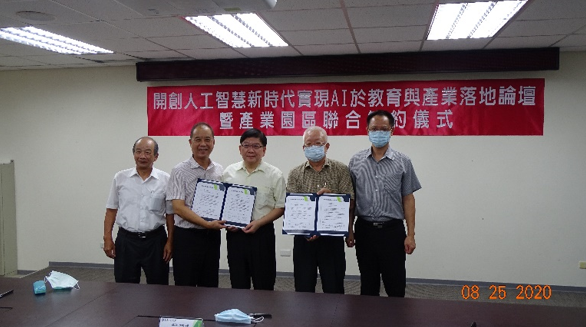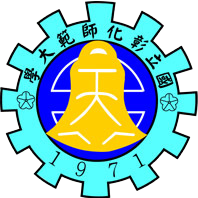SDG1.4.2 Local start-up financial assistance Year: 2019 or 2020
To support and encourage local enterprises’ sustainable development, NCUE explores their uniqueness and provides various types of support to encourage the traditional local industries such as sanitary ware and mechanical processing to move towards sustainable development. Leveraging industry–official–university cooperation and helping local industries apply for such programmes as Small Business Innovation Research (SBIR),NCUE helps enterprises move towards sustainable development. The specific measures are as follows:
1. With the Innovation Incubation Centre as the core, NCUE continuously allocates consultation resources for deep cultivation of local enterprises.
NCUE’s units, including the Innovation Incubation Centre (part of the Research and Development Department), the Department of Business Administration, and the Environmental Education Centre, continuously provide consultations to support the industrial technology upgrades of local enterprises and guide the enterprises in drafting plans and applying for government R&D subsidies. These efforts cultivate robust industrial cooperation in the Taichung–Changhua-Nantou Region and widen the scope of the consultation benefits.
For example, the Innovation Incubation Centre links the industry units with the governments and academia in the Taichung–Changhua Region to implement such projects as Caring for Local Industrial Parks/Innovation Plans/SBIR and holds the Revitalization of Changhua’s Local Community × Industrial Development Forum and the Exhibition of Consultation Achievements and Sales to promote the R&D results of participating local enterprises.
2. NCUE develops sustainable enterprises through its University Social Responsibility (USR) Projects.
To promote NCUE’s University Social Responsibility (USR) Projects, its Department of Business Administration has established an exclusive team to provide e‑commerce services for partner enterprises. The team provides guidance and consultations to help the enterprises with product photography, copywriting, and social media management to develop sports tourism and promote the unique knitted socks industry, revitalize Shetou, and help Shetou retain hometown talent.
The Environmental Education Service Centre takes the Haha Fisheries as a model and expands cooperation areas with the Changhua County Aquaculture Association and the Youth Aquaculture Association. The associations’ core members serve as tutors who guide the students towards a deep understanding of the local industry. The Centre also assists the locals with breeding fish in an environmentally friendly way, promotes the Food Traceability System, helps find comprehensive solutions to such problems as the sudden deaths of Asian hard clams, and actively cooperates with the communities to implement and apply relevant projects to improve the outcomes of fishing villages, transform the communities, train new talent, and achieve sustainable environmental management.
NCUE’s Innovation Incubation Centre, Department of Business Administration, Environmental Education Centre, and faculty members help local enterprises obtain relevant R&D subsidies, as shown in Annex 1.4.2A.
|
Link to supporting information |
Plan/policy |
Approved amount for the projects |
|
Caring for Local Industrial Parks Project/Innovation Plans/SBIR |
1. Helped with 8 SBIR applications (6 were approved), obtaining a total subsidy of 5.735 million NTD 2. Filed four applications for Innovation Plans, for a total subsidy of 7.812 million NTD |
|
|
University Social Responsibility (USR) Project ‘Shetou Sock Projects: Innovation, Entrepreneurship, Revitalization’ |
2.5 million NTD approved by the USR Projects |
|
|
University Social Responsibility (USR) Projects ‘Deep Cultivation in Fangyuan’ and ‘Joining Hands in Dacheng: Changhua Twin Cities’ Industrial and Environmental Sustainability’ |
1. 3.5 million NTD approved by the USR Projects 2. Assisted in two applications for the food and agriculture education project, for a total subsidy of 200,000 NTD |
|
|
Faculty Members |
Industry–University Cooperation Project |
1. Received a subsidy of 13,577,358 NTD |


